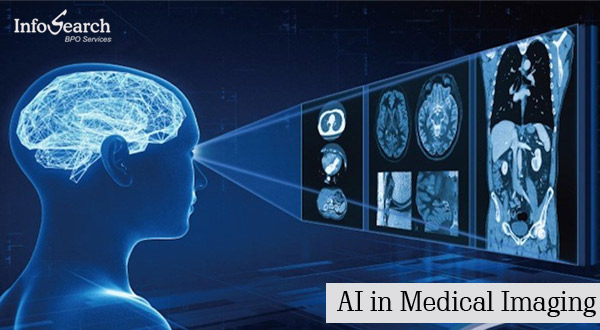
AI Drives Breakthroughs in Medical Imaging and DiagnosisAI Drives Breakthroughs in Medical Imaging and Diagnosis Artificial intelligence (AI) is rapidly transforming the healthcare industry, and medical imaging is one of the areas where its impact is most profound. AI-powered algorithms are being used to analyze medical images, identify patterns, and make diagnoses with unprecedented speed and accuracy. This is leading to breakthroughs in early detection, personalized treatment, and improved patient outcomes. Early Cancer Detection One of the most exciting applications of AI in medical imaging is in the early detection of cancer. Traditional methods of cancer screening, such as mammograms and colonoscopies, can be invasive and uncomfortable, and they often fail to detect cancers at an early stage when they are most treatable. AI algorithms, however, can analyze vast amounts of medical images and identify subtle patterns that may indicate the presence of cancer, even before symptoms appear. For example, researchers at Stanford University have developed an AI algorithm that can detect skin cancer with 91% accuracy. The algorithm uses deep learning to analyze images of skin lesions and identify patterns that are associated with melanoma, the most dangerous type of skin cancer. This algorithm has the potential to save lives by detecting skin cancer at an early stage when it is highly treatable. Personalized Treatment Planning AI is also being used to personalize treatment plans for cancer patients. Traditional treatment plans are often based on the average response of patients with similar characteristics. However, every patient is unique, and AI can be used to analyze individual patient data and predict how they will respond to different treatments. For example, researchers at the University of California, San Francisco have developed an AI algorithm that can predict which breast cancer patients will benefit from chemotherapy. The algorithm uses deep learning to analyze tumor images and identify patterns that are associated with chemotherapy response. This algorithm has the potential to improve outcomes for breast cancer patients by ensuring that they receive the most appropriate treatment. Improved Patient Outcomes The use of AI in medical imaging is leading to improved patient outcomes across a wide range of diseases. For example, AI algorithms have been shown to improve the accuracy of diagnosis for Alzheimer’s disease, heart disease, and stroke. AI is also being used to develop new treatments for diseases such as diabetes and Parkinson’s disease. As AI continues to evolve, its impact on medical imaging and diagnosis will only grow. AI algorithms are becoming more sophisticated and accurate, and they are being used to solve a wider range of healthcare problems. This is leading to a new era of personalized medicine, where each patient receives the right treatment at the right time.
Posted inNews